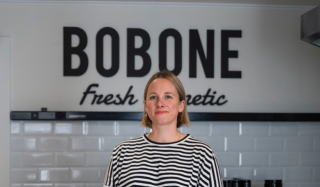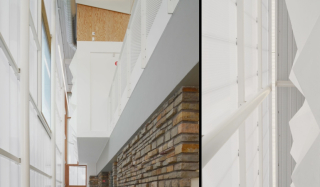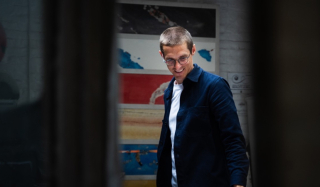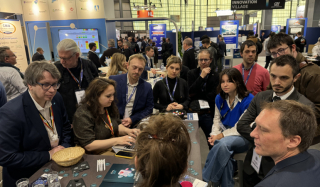
The Brussels animation studio nWave will soon release "The Queen's Corgi", its new feature film that has already been bought by almost 70 countries! This is an opportunity to find out a bit more about the Belgian studio competing with the American giants in the sector.
Ben Stassen, Caroline van Iseghem and Eric Dillens founded nWave in 1994. The studio known as the "Belgian Pixar" can easily hold its own against the sector's great Hollywood stars, generating more than 300 million dollars at the box office (since 2008) with its eight feature films, including "Fly Me to the Moon", "L'extraordinaire voyage de Samy" (A Turtle's Tale: Sammy's Adventures) and "The Son of Bigfoot". Ahead of the imminent release of "The Queen's Corgi", which humorously tells the story of the Queen of England's dogs, nWave has already sold the film to more than 70 countries and the trailer has had more than 20 million views on social media. Even with its meagre resources, the studio can match the big names in animation, such as Disney, Dreamworld and Pixar. "The budget for our films is around 20 million dollars, while in the United States an animated film costs at least 100 million. This does not mean that we can be five times less attractive! We have to be more efficient and make compromises,” explained Ben Stassen.
It was after meeting Jean-Pierre Dauzun, founder of Little Big One (LBO), in the early 1990s, that Ben Stassen created his first four-minute short film, which was shown in amusement parks. LBO went bankrupt in 1994 and Ben Stassen decided to take over the company with Caroline van Iseghem and Eric Dillens, founding nWave. Since then, 4 to 5 million euros a year, a quarter of the company's turnover, has been generated by short films for leisure parks (Efteling, Futuroscope etc.), museums, zoos, etc. "Today, all our feature films are also produced in the form of a 5- to 10-minute film for amusement parks,” said the co-founder.
After the distribution of its first film, "Fly Me to the Moon", which was entirely self-funded (with a budget of more than 15 million euros), nWave joined forces with Studio Canal (Canal + Group) to launch its second film, "Le Voyage extraordinaire de Samy", which generated 100 million dollars at the box office. In 2010, Studio Canal acquired a 49% stake in the company, which went on to produce four more films. However, when nWave told Canal that it wanted to make "The Queen's Corgi", the studio did not approve the idea because David Heyman, producer of the "Harry Potter" and "Paddington" blockbusters (co-produced with Studio Canal) was planning to work on the same characters. nWave broke away from the Group to become an independent company again and in late 2017, Ben Stassen and his partners launched "The Queen's Corgi", buying back the shares held by Studio Canal.
nWave needed new investors in order to grow, particularly at international level. So last autumn, Matthieu Zeller (former STUDIOCANAL Assistant Director General for strategic marketing and distribution in France and internationally), the Belga Group and Wallimage Enterprises took over 51% of the company's shares. These new investors gave nWave new funding sources and the possibility of making greater inroads into the American market. "This is our greatest challenge. This new financial capacity will allow us to work on several projects at a time and make jobs more secure," said Ben Stassen. “Some people have been working here since the start and we have a responsibility towards them.” The Brussels studio does almost everything internally, so it is easy to attract and retain talented employees, according to its co-founder. "We are very productive; we make a film every 15 months. They know that their job will be permanent.” nWave currently has 30% Belgian, 30% French and 40% international staff.
Lastly, Ben Stassen, via nWave, highlighted the Tax Shelter system adopted by the Federal Government in 2004. With its significant tax advantage, this financial product aims to encourage businesses to invest in audiovisual production in Belgium. "I think nWave meets all the objectives of Tax Shelter, meaning that it creates economic activity and employment in Belgium, as we currently have 120 employees. We have no problem raising funds. We are now even in a position to ask fundraisers for a bond. The Belga Films Fund guarantees us 4.5 million euros in funding every time.”
Source : l'Echo







